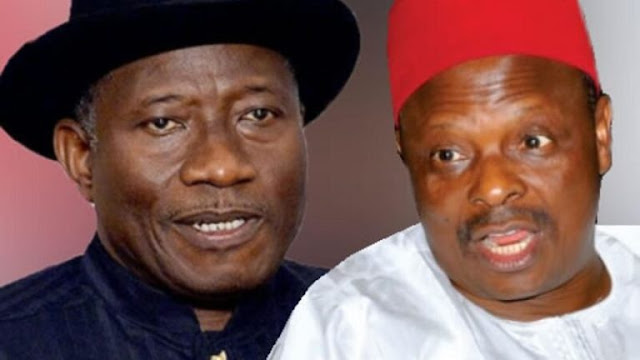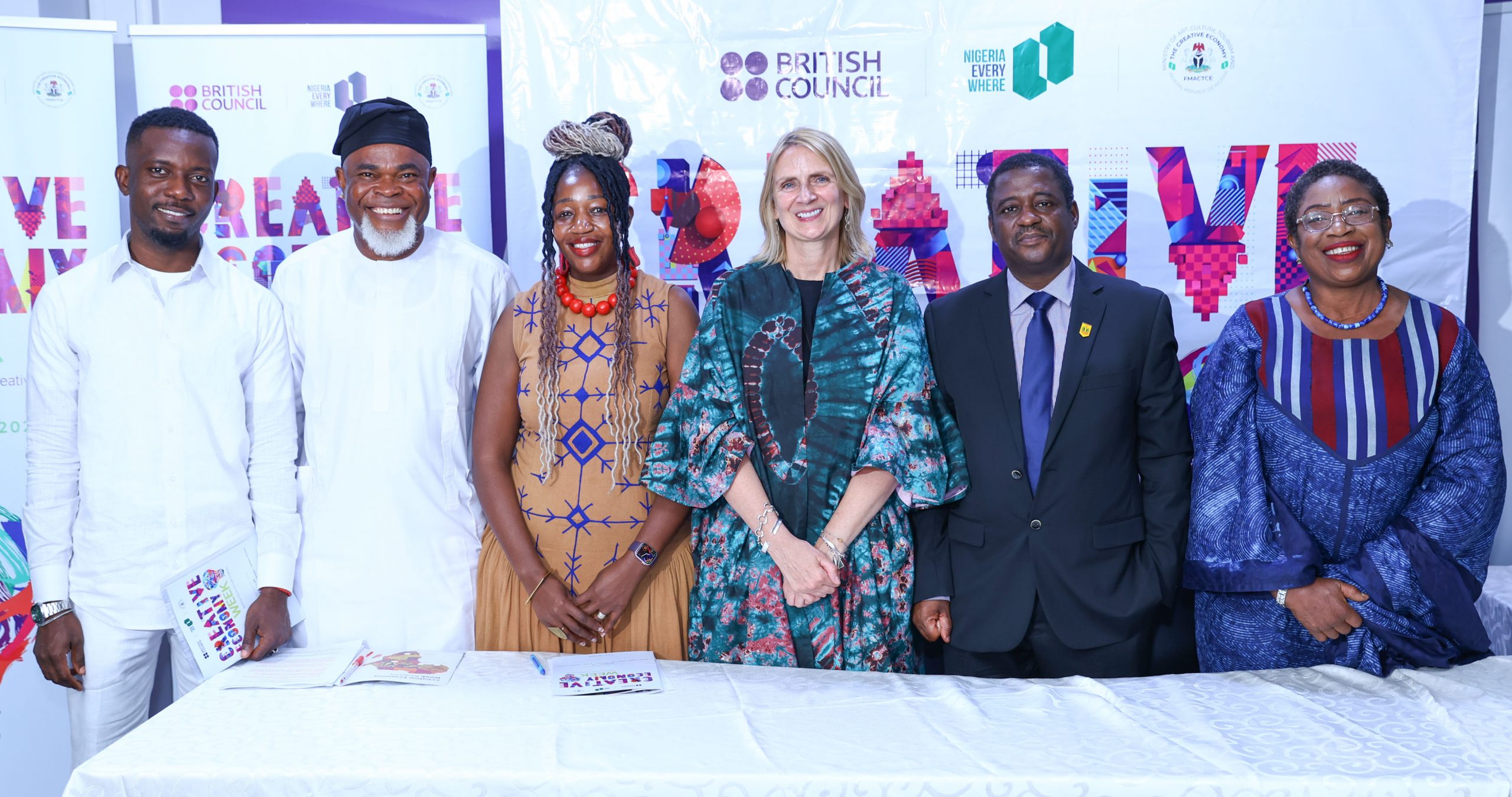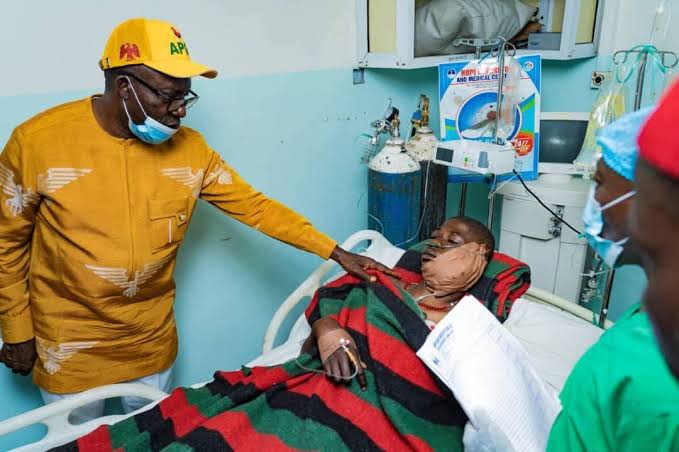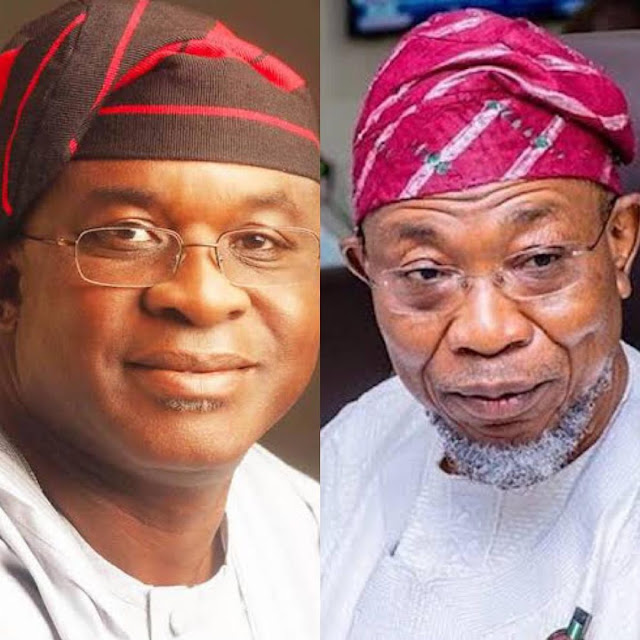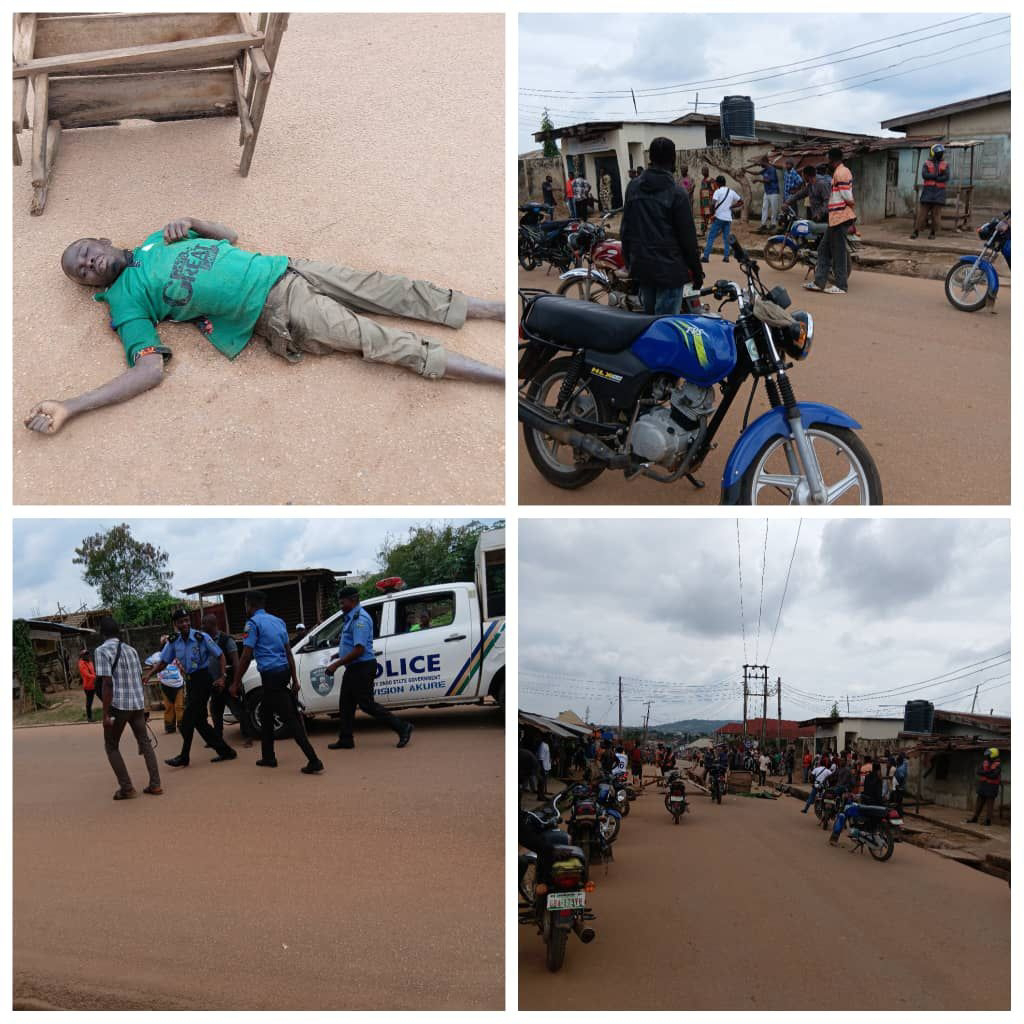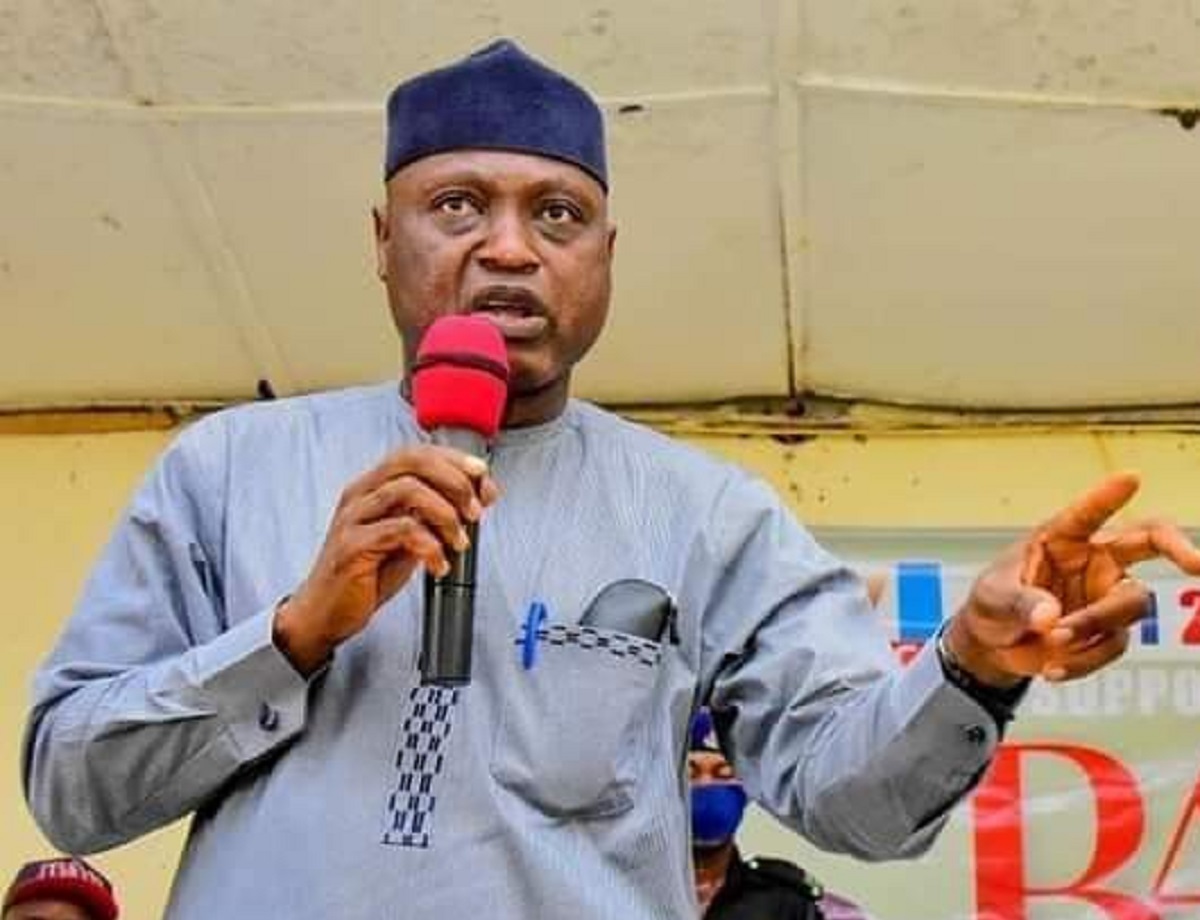In the ever-evolving landscape of Nigerian politics, where alliances shift like sand dunes in the harmattan wind, a new chapter is unfolding that could reshape the opposition’s strategy ahead of the 2027 general elections. Reports emerging from credible sources indicate that the political camp of former President Goodluck Ebele Azikiwe Jonathan is actively engaging in preliminary discussions with Rabiu Musa Kwankwaso, the influential former governor of Kano State and founder of the New Nigeria Peoples Party (NNPP). This potential partnership is not just a casual overture but a calculated move aimed at consolidating opposition forces against the ruling All Progressives Congress (APC), which has dominated the political scene since 2015.
The news, first broken by Vanguard newspaper and corroborated by insiders close to both camps, reveals that emissaries from Jonathan’s team have already held meetings with Kwankwaso’s representatives. These talks, described as “exploratory” by one source, center on the possibility of forming a broad coalition that could challenge the incumbent administration’s grip on power. At the heart of these negotiations are what insiders term “minimal demands,” which are essentially the foundational terms that would govern any formal alliance. However, the sticking point appears to be Kwankwaso’s insistence on securing the vice-presidential slot on a joint ticket. This demand underscores the high stakes involved, as Kwankwaso, a seasoned politician with deep roots in the North, sees the VP position as a non-negotiable entry point to ensure his influence and that of his supporters in the alliance.
To fully appreciate the significance of this development, one must delve into the backgrounds of these two key figures. Goodluck Jonathan, who served as Nigeria’s president from 2010 to 2015, ascended to the highest office following the untimely death of his predecessor, Umaru Musa Yar’Adua. His tenure was marked by a mix of achievements and controversies. On the positive side, Jonathan’s administration witnessed significant growth in the telecommunications sector, with mobile penetration skyrocketing and the economy briefly becoming Africa’s largest by nominal GDP in 2014. Initiatives like the Almajiri Education Programme aimed at integrating out-of-school children into formal education, particularly in the North, were lauded for their inclusivity. However, his presidency was also plagued by security challenges, including the escalation of Boko Haram insurgency in the Northeast, widespread corruption allegations, and economic policies that critics argued favored imports over local production. Jonathan’s defeat in the 2015 elections to Muhammadu Buhari was a pivotal moment, as he famously conceded defeat before the official results were announced, earning him praise for upholding democratic norms. Since then, he has maintained a relatively low political profile, focusing on international diplomacy and philanthropy, but whispers of a comeback have persisted, fueled by dissatisfaction with the current administration’s handling of economic woes and insecurity.
Rabiu Musa Kwankwaso, on the other hand, is a political heavyweight whose career spans decades. Born in 1955 in Kano, he has held various positions, including deputy speaker of the House of Representatives, minister of defense, and governor of Kano State twice—first from 1999 to 2003 and again from 2011 to 2015. Kwankwaso’s political philosophy is often encapsulated in his “Kwankwasiyya” movement, a grassroots ideology emphasizing education, infrastructure, and empowerment of the masses, particularly in northern Nigeria. During his governorships, he invested heavily in education, establishing over 200 kilometers of roads, building hospitals, and sponsoring thousands of students for overseas scholarships. His fallout with the APC in 2022 led to the formation of the NNPP, under which he ran for president in 2023, securing about 6.23% of the vote—impressive for a relatively new party. Kwankwaso’s appeal lies in his ability to mobilize the youth and women in the North, a demographic that could prove invaluable in any national alliance.
The rationale behind this potential Jonathan-Kwankwaso alliance is rooted in strategic complementarity. Jonathan, from the South-South (Ijaw ethnic group in Bayelsa State), brings national recognition and a track record of southern and minority support. Kwankwaso, a Fulani from the North, commands loyalty in the core northern states, where ethnic and regional dynamics play a crucial role in elections. Together, they could bridge the North-South divide that has historically defined Nigerian politics. Insiders suggest that the talks began informally in late 2024, amid growing frustration within opposition circles over the APC’s perceived authoritarian tendencies and economic mismanagement. The 2023 elections, marred by allegations of rigging and violence, have left many Nigerians yearning for a unified opposition front. A source familiar with the discussions noted, “While Jonathan’s team is not outrightly opposed to working with Kwankwaso, no final position has been taken on the demand” for the VP slot. This hesitation reflects the delicate balancing act Jonathan’s strategists are performing—accommodating Kwankwaso without alienating other potential partners.
Yet, as promising as this alliance sounds, it is fraught with challenges. Kwankwaso’s demand for the vice-presidential ticket is seen by some in Jonathan’s camp as ambitious, given that it positions him as the running mate to a southern candidate, potentially reversing the traditional ticket structure where the president is often from the North. Jonathan’s team is reportedly exploring alternatives, such as aligning with a younger northern governor who could energize the youth vote. Names like Babagana Zulum of Borno or Uba Sani of Kaduna have been floated in private conversations, as these figures represent a fresh face in northern politics, appealing to millennials and Gen Z voters who constitute a growing electoral bloc. The youth demographic, often disillusioned by unemployment and insecurity, could be the swing factor in 2027, and Jonathan’s camp is keen not to cede this ground to the APC’s younger aspirants.
Beyond the alliance dynamics, the more pressing conundrum for Jonathan lies in selecting the appropriate political platform. Nigerian politics is a labyrinth of parties, each with its own internal power struggles, and Jonathan must navigate this carefully to avoid self-sabotage. The two frontrunners under consideration are the Peoples Democratic Party (PDP), the main opposition party that Jonathan once led, and the African Democratic Congress (ADC), a smaller but potentially more malleable outfit.
The PDP, founded in 1998 as a merger of various groups to counter military rule, has a storied history. It governed Nigeria from 1999 to 2015, producing three presidents: Olusegun Obasanjo, Umaru Yar’Adua, and Jonathan himself. The party’s strength lies in its nationwide structure and loyal base in the South and parts of the North. However, since losing power in 2015, the PDP has been beset by infighting. The 2022 primaries were a circus of acrimony, with Atiku Abubakar emerging as the flagbearer amid protests from southern elements over zoning controversies. The current crisis revolves around Nyesom Wike, the former governor of Rivers State and a PDP chieftain until his recent defection to the APC. Wike, known for his bombastic style and control over Rivers’ oil-rich resources, has been at loggerheads with Atiku and other PDP leaders. His alignment with the APC, where he now serves as FCT Minister, has deepened divisions within the PDP. Pro-Wike factions, still influential in the South-South, view Jonathan’s potential return with suspicion, fearing it would dilute their leverage or reignite old rivalries from the 2015 primaries, where Jonathan’s loss was partly attributed to internal sabotage.
Despite these hurdles, some PDP leaders are warming to Jonathan’s comeback. Figures like former Senate President David Mark and governors from the Middle Belt see him as a unifying figure who could reclaim lost ground in the Niger Delta and beyond. A close ally of Jonathan admitted the former president is “both optimistic and confused about his chances in the PDP.” The optimism stems from Jonathan’s enduring popularity among party faithful who credit him with stabilizing the economy post-global financial crisis and advancing infrastructure like the railway networks. The confusion arises from the “remote control” exercised by competitors—Wike’s proxies in the PDP structures and Atiku’s enduring influence. Sources indicate that many who left the PDP did so in protest against Wike’s “takeover,” creating an opening for Jonathan to return as a reformer.
Enter the African Democratic Congress (ADC), a wildcard option that has gained traction as a fallback. Established in 2005, the ADC has never been a major player nationally, peaking at just 0.79% in the 2019 presidential elections. However, under the recognized leadership of David Mark—former Senate President and a Jonathan loyalist—the party has been repositioned as a vehicle for progressive politics. Mark, a seasoned military officer turned politician from Benue State, brings credibility and a network of Middle Belt supporters. The ADC’s appeal lies in its relative lack of baggage; it’s not tainted by the PDP’s recent scandals or the APC’s incumbency. Jonathan enjoys loyalty from several top ADC figures, who view him as a natural leader. “It is a fact that at the moment, the ADC is made up of mostly Goodluck Jonathan’s ‘boys’ who are ready to offer him the platform to run,” a source revealed.
But even here, complications lurk. Atiku Abubakar, the perennial presidential aspirant and former vice president under Obasanjo, is reportedly angling for the ADC ticket as well. Atiku, 78 years old and from Adamawa State, has run for president five times (1993, 2007, 2019, 2023 under PDP, and now potentially ADC). His business acumen and northern Fulani heritage make him a formidable contender, but his multiple defeats have painted him as a “serial loser” in public discourse. Atiku’s interest in the ADC raises fears of internal clashes, as his camp could challenge Jonathan’s dominance. Unlike Jonathan, Atiku lacks the same “foothold” in the ADC, but his financial muscle and alliances could stir trouble. The source emphasized, “Atiku is also angling for the same platform, even though he does not seem to have a foothold on the party like Jonathan.”
Jonathan’s sentimental attachment to the PDP cannot be understated. As the party that propelled him from Bayelsa deputy governor to the presidency, it holds emotional and historical significance. Many analysts predict he will ultimately pitch his tent there, leveraging his “strong sentiments” and the exodus of Wike loyalists to rebuild. However, the ADC remains a pragmatic choice if PDP factions prove too fractious. This dilemma mirrors broader trends in Nigerian politics, where party loyalty often clashes with strategic necessity. Historical precedents abound: Obasanjo’s 1999 return via PDP after military rule, or Buhari’s multiple party switches before settling on APC in 2014.
The implications of these developments are profound. A Jonathan-Kwankwaso alliance could invigorate the opposition, potentially drawing in other parties like the Labour Party (post-Peter Obi) or even disaffected APC members. It might force the APC to recalibrate its strategy, perhaps by zoning the presidency to the South to counter southern votes. Economically, Jonathan’s return could signal policy shifts toward diversification—reviving agriculture and tech initiatives from his era—while Kwankwaso’s focus on education could address northern underdevelopment. Yet, risks loom large: If the VP demand stalls talks, Kwankwaso might align elsewhere, perhaps with the APC or independently via NNPP. Internal party wars could fragment the opposition further, benefiting the ruling party.
Public reaction, gauged from social media and analyst commentaries, is mixed. Supporters hail Jonathan as a “gentle giant” who deserves a second chance, citing his peaceful handover in 2015 as evidence of statesmanship. Critics, however, decry a potential comeback as regressive, pointing to unaddressed corruption cases like the $20 billion allegedly missing from NNPC coffers during his watch. Kwankwaso enjoys grassroots adoration in Kano but faces skepticism nationally due to his perceived aloofness.
As Nigeria grapples with inflation above 30%, naira devaluation, and banditry, the 2027 race is already taking shape. Jonathan’s camp must weigh these options meticulously. Will the PDP’s familiarity triumph over the ADC’s cleanliness? Can Kwankwaso’s ambition be accommodated without fracturing the alliance? Only time will tell, but one thing is certain: Nigerian politics remains a high-stakes game where yesterday’s allies become tomorrow’s rivals.
Expanding on the broader context, it’s essential to consider the constitutional framework governing these maneuvers. Nigeria’s 1999 Constitution (as amended) allows former presidents to run again, with no term limits beyond the two-term cap—Jonathan served one full term plus part of Yar’Adua’s, so he’s eligible. The Electoral Act 2022 mandates primaries for party nominations, meaning Jonathan must win delegates’ support in whichever platform he chooses. Zoning conventions, though not legally binding, traditionally rotate power between North and South; Jonathan’s southern origin might face pushback if the PDP insists on a northern candidate.
Furthermore, the role of money in these talks cannot be ignored. Nigerian elections are notoriously expensive, with candidates spending billions of naira on campaigns. Jonathan, with his international connections, could access funding from diaspora networks, while Kwankwaso’s NNPP has demonstrated efficient grassroots mobilization. Atiku’s wealth from business ventures gives him an edge in the ADC contest.
Looking ahead, similar alliances have succeeded and failed. The 2019 PDP coalition under Atiku crumbled due to poor coordination, while the 2015 APC merger ousted Jonathan. Lessons from these could guide the current efforts. Analysts like Ezenwa Nwagwu of Sayaveth Nigeria argue that unity is key: “Without a mega alliance, the opposition risks another 2023 repeat.”
In the North, Kwankwaso’s demand resonates with the Arewa Consultative Forum’s calls for equitable power-sharing. Southern groups like Ohanaeze Ndigbo might support Jonathan but prefer an Igbo VP, complicating matters.
Ultimately, as the September 11, 2025, report underscores, Jonathan’s path is one of optimism tempered by realism. The former president’s “dilemma” encapsulates the intricate web of Nigerian politics—ambition, loyalty, and pragmatism intertwined.


